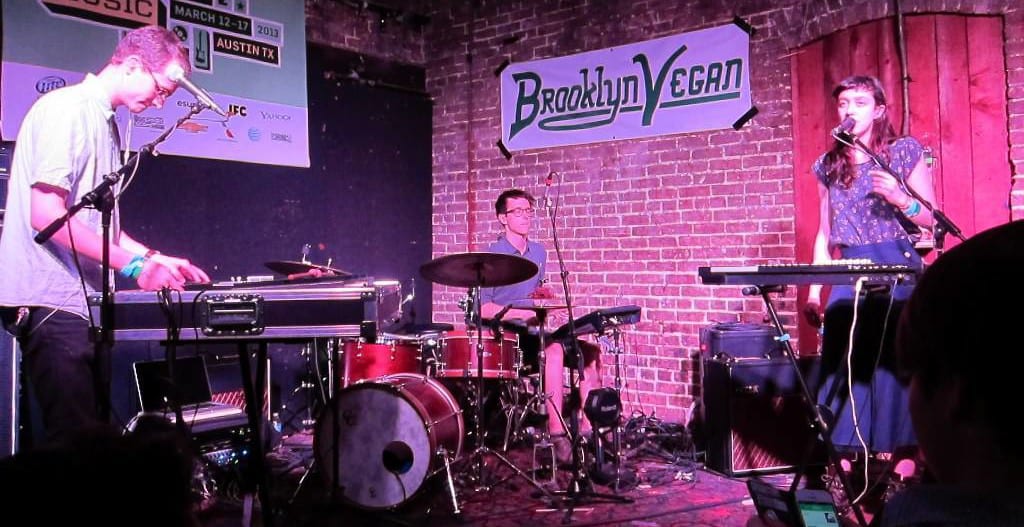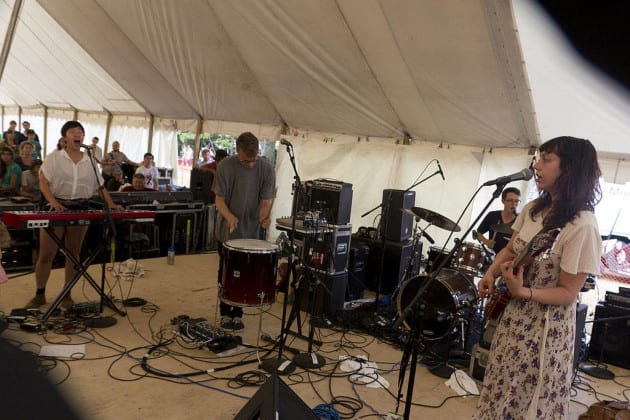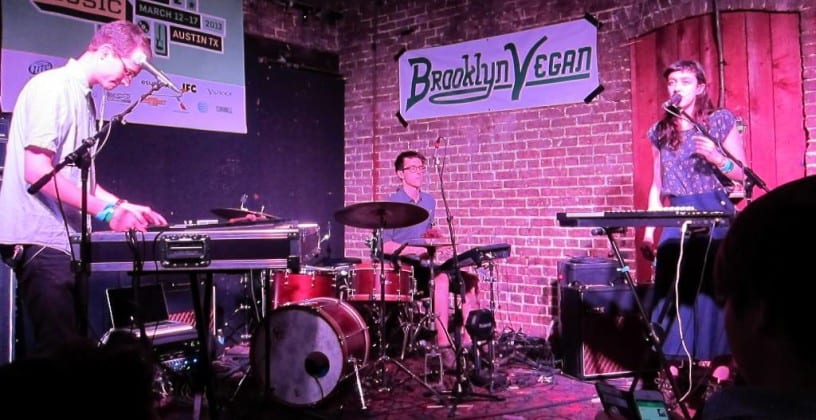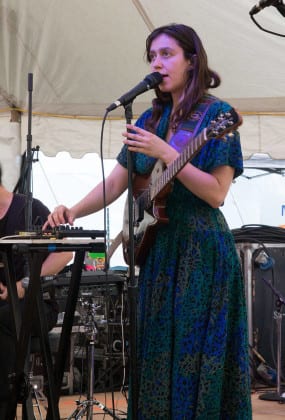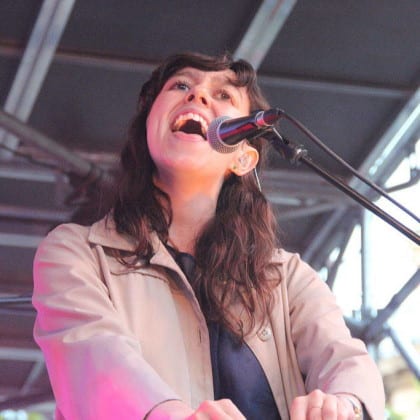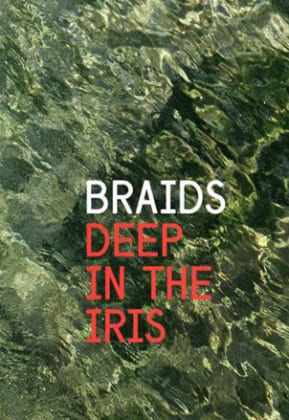Album Review: Braids’s “Deep in the Iris”
Montreal dream-pop band Braids have trumped their previous releases with “Deep in the Iris.” An inimitably impassioned Raphaelle Standell-Preston waxes Hispanic (or something), often evoking Sinead O’Connor and Cocteau Twins. Generally, it features slow-moving, whole-note-based piano chords underneath soaring vocals that rocket above Austin Tufts’ tight drumming. In fact, while the overall production feels more mature than ever, the super-snug, high-energy drumming on this album is what makes it stand out from the others. It’s not that it’s perfectionistic; on the contrary, it just happens to approach perfection, naturally and casually. Indie rockers of the world, take note: this is how it’s done.

“Letting Go”—an immediate charmer—is the opening track, which opens with a piano statement that is soon embellished by a moderate, slightly fuzzed beat. As is her inclination, Stanten-Preston’s enunciation is slightly Latino as she takes a deconstructionist approach in discussing the nature of the self amongst a constellation of woodblock arpeggia.
Similarly, most of the substance in “Taste” is in the drums and vocals, with piano and bass functioning more as mere leaves on the musical tree. Tufts rides the cymbal with the pocketed syncopation of a Stewart Copeland devotee, and the piano has been sampled, cut, and manipulated into a sonic patchwork by the time the song ends.
“Blondie” is perhaps most closely comparable to their previous work, with Staten-Preston flying high through clouds of relentlessly breakbeat drums, synth bass, and various ambient punctuations. With ocean-worthy cymbal crashes and a slightly distorted, house-shaking kick drum, Tufts invokes Flaming Lips‘ Kliph Scurlock (or Yoshimi herself) during the battle scene in “Yoshimi Battles the Pink Robots.”
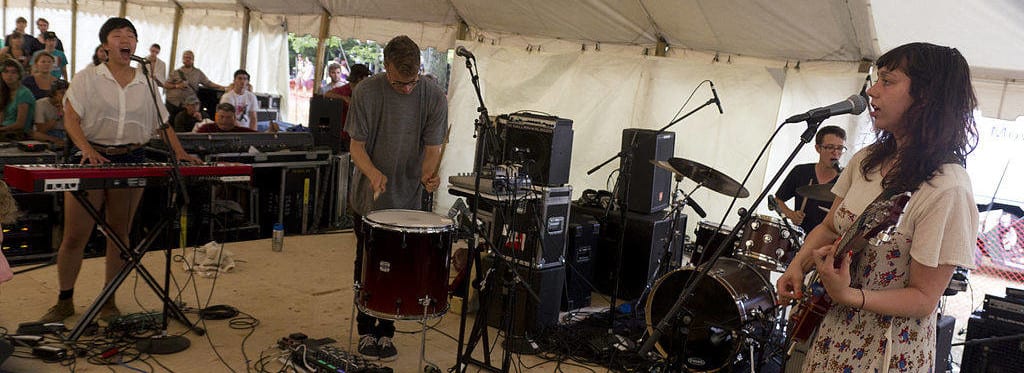
At moments, “Happy When” sounds like something from Bjork’s “Vespertine,” without fully departing from the overall piano-driven, only slightly lo-fi aesthetic. “Miniskirt” is an anti-misandrous plea against misogyny. Drums that could have been heard on any late-era Radiohead album intrude upon various pitch-shifting, warbly keyboards. It all slows to a halt, eventually crumbling into “Getting Tired,” which sounds like Tower of Power deity David Garibaldi drumming along with Staten-Preston, who sings and plays what could be an old upright piano in some abandoned elementary school.
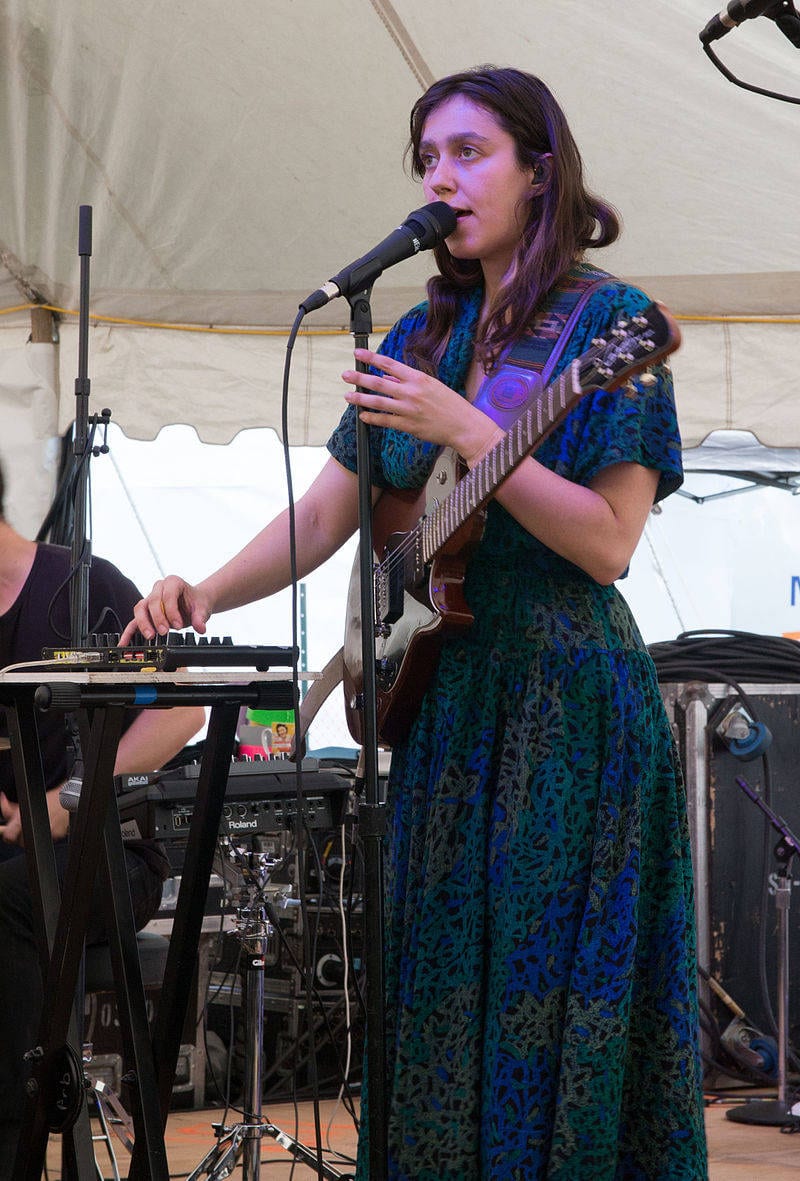
Touching on the more repugnant aspects of participating in pornography at any level, “Sore Eyes” moves away from the acoustic approach—away from the piano and drums and toward the keyboard, sampler, and sequencer—resulting in the sort of four-on-the-floor that you hear in most dance music. It’s hardly IDM, though, as it’s still far too subtle for any disco.
A spacey reggae kicks off “Bunny Rose,” a tribute to the bachelor (or bachelorette) life. Again, it has elements that remind one of Thom Yorke: the lo-fi sound design, the heavy emphasis on computerized percussion, the abundant ambience, and the eerie vocal fog that floats around above it all.
Finally, “Warm Like Summer” follows suit with much of the rest of the album with deftly precise, energetic drums over a patchwork of dark piano chords, synth loops, and vocals. An extended coda rounds out the song as the trio exits this album as a “band,” with bass, piano, drums, and voice. Just like the good ol’ days.
One of the best things about this album is its replay value. Braids utilizes the strategy of “leave ’em wanting more,” clocking in at around 40 minutes. This compensates for one of the album’s few potential weaknesses: its homogeneity—if that is a weakness. It’s not necessarily. “Deep in the Iris” isn’t a chameleonic promenade; Braids has a sound, and they’ve distilled it into an intoxicating nectar.
